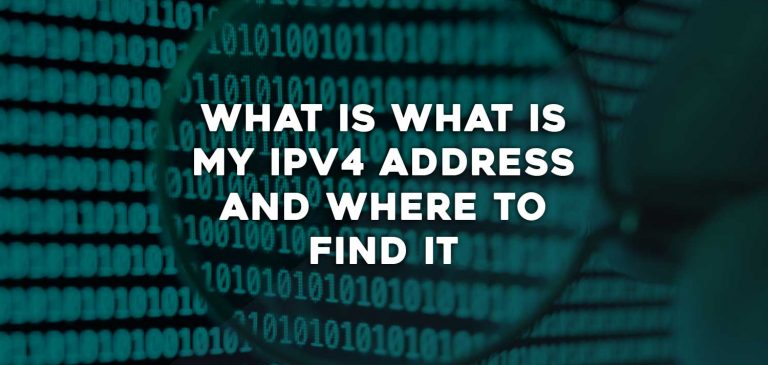One of the fundamental building blocks of the internet is the IP address. An IP address or internet protocol is a numeric label assigned by your internet service provider that helps identify your device from billions of devices that are connected to the internet. Think of your IP address as an online home address for your device. Devices use an IP address to communicate with each other.
An IP address functions to direct data to and from a given destination. When your computer or device is connected to the internet in order for you to surf the web you have to first type in a website or domain name i.e., monsterhost.com into the internet browser. However, computers are not designed to understand words only numbers. So, when you type the address in the URL bar, the computer has to find the IP address that matches the website first (121.89.78.3). Once it locates it on the web, it serves the webpage up to your screen. Sounds easy right? Well, it happens in fractions of a seconds.
Table of Contents
What’s the difference? IPv4 vs. IPv6 addresses
The structure of an IP address depends on the version of internet protocol being used. So, either IPv4 or IPv6. Let’s dive into what the difference between the two are and how they work to help us use the internet.
IPv4 Address
The majority of ISPs (internet service providers) use IPv4. This version of IP uses 32 binary bits. It consists of four numbers 0 to 255, and is separated by dots.
For example, 203.76.89.1. The issue with IPv4 is that it has its numerical limits with only 4.3 billion unique IP addresses combinations available. Which means it is inefficient to meet the demands for the current digital age—therefore IPv4 address will eventually run out, sooner rather than later.
IPv6 Address
These addresses consist of up to 8 blocks of numbers. Each block has four hexadecimal digits and separated by colons. For example, 3200:BB30:0000:0000:0000:0000:0001. When writing IPv6 address the groups containing only zeros are omitted to save space. Instead, we add a colon to indicate the gap, therefore, 3200:BB30:1100::1.
Public vs. private IP addresses?
If you’re wondering “where is my IP address?”, normally you’re referring to your public IP. The public IP address is the address provided by your internet service provider. Devices on the same network share the same IP address when connecting to the internet.
For example, your home network is made up of your computer, phone, tablet and any other device connected to your router. When your devices access the internet, they use the public IP address assigned to your router from your ISP.
The router then assigns a private IP address to each device on the network so that these devices can identify and locate each other. The private IP generated by the router remains hidden when these devices connect to the internet and only the public IP address of the router is visible online.
Static vs. Dynamic IPs
When it comes to public IP addresses, they are split into two different categories: static and dynamic.
A dynamic IP address is an IP address that changes over a period of time. Your ISP will assign a dynamic address, however, every time the device is rebooted, a new device is added to your network, or someone changes your network configuration the dynamic IP will also change. Not to worry, these changes do not impact your connection negatively, and a dynamic IP address is mostly used in household connections.
A static IP address, is the opposite of a dynamic IP in that it never changes. Static IP addresses are normally assigned to servers where websites are hosted or for email or FTP services. However, a static IP can also be assigned to public organizations require a stable connection and a consistent web address. Other users may want to use static IP addresses for gaming or VOIP (voice over internet protocol) connections because they require stable connections.
Static IP Addresses are hardly ever used for individual households as they have some disadvantages:
- ISPs charge additional fees for assigning a static IP;
- They entail additional security measures as they are more vulnerable to brute force attacks;
- They are easier to track by data mining companies.
What is a Dedicated IP Address?
Now where veering into hosting territory where IP addresses are concerned. A dedicated IP address is a static address that is unique to a website on a shared hosting server. In fact, many static IP addresses can be assigned to web servers that host websites.
The server assigns a static IP to multiple websites giving it a shared IP address.
However, there is an exception to the rule, the web server offers a static and unique IP address to one website making it a dedicated IP.
Some people opt for a dedicated IP address if they have consistent high traffic and need a more stable connection. Web developers might require access to a server via its IP rather than a URL. For example, if the system is down, or they may need a stable IP address to install an SSL (secure sockets layer) certificate for their website. Even so, dedicated IPS aren’t simply just for websites—individuals can request them too. You can get a dedicated IP from your VPN provider. So, let’s say you use one to safely surf the internet, you can simply surf on a safer route on a dedicated IP.
There are many benefits to a dedicated IP:
- Permits you to regulate your online reputation;
- Can be used for online banking as a security measure. Online banks will sometimes flag logins with shared IPs as suspicious activity;
- Makes websites unlikely to ask you to complete ‘captcha’ requests;
- Let’s users connect to remote servers via whitelists.






